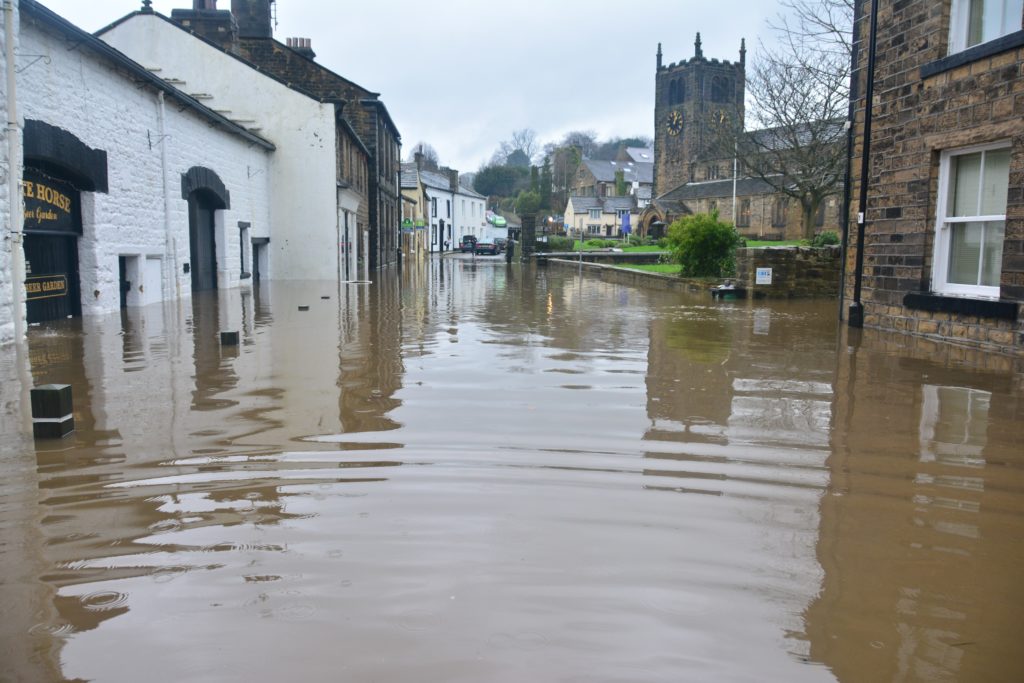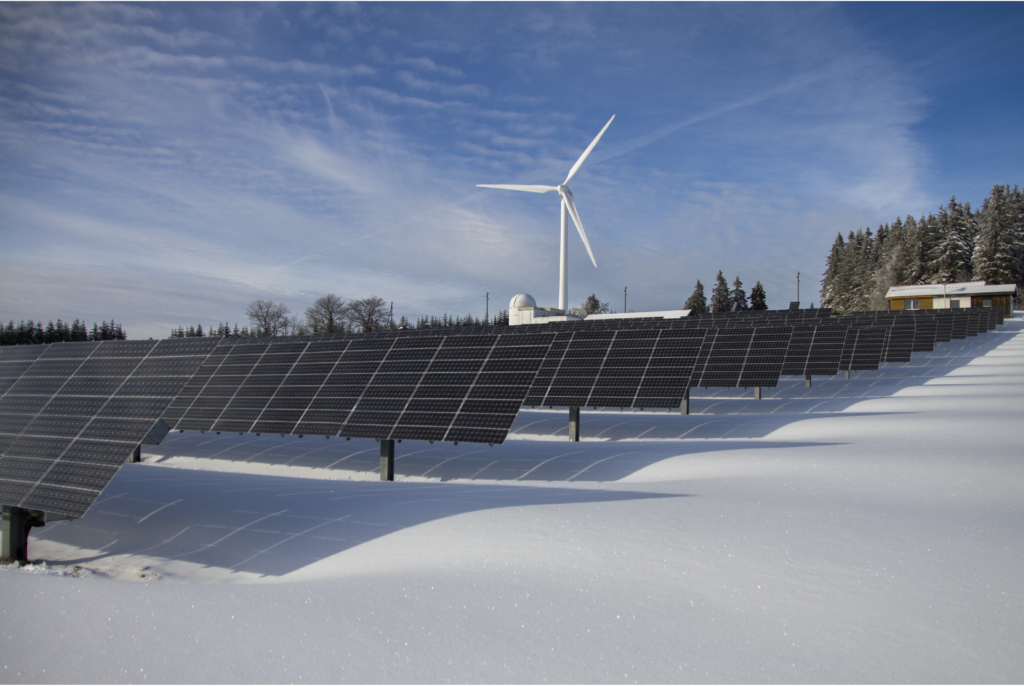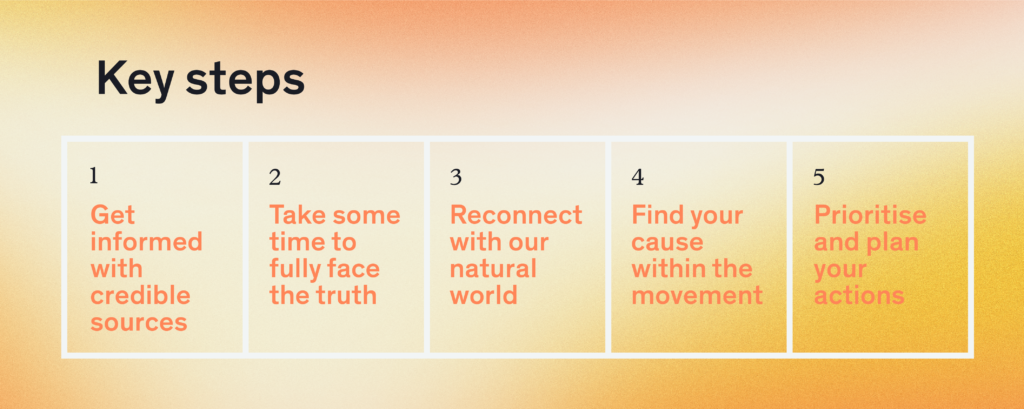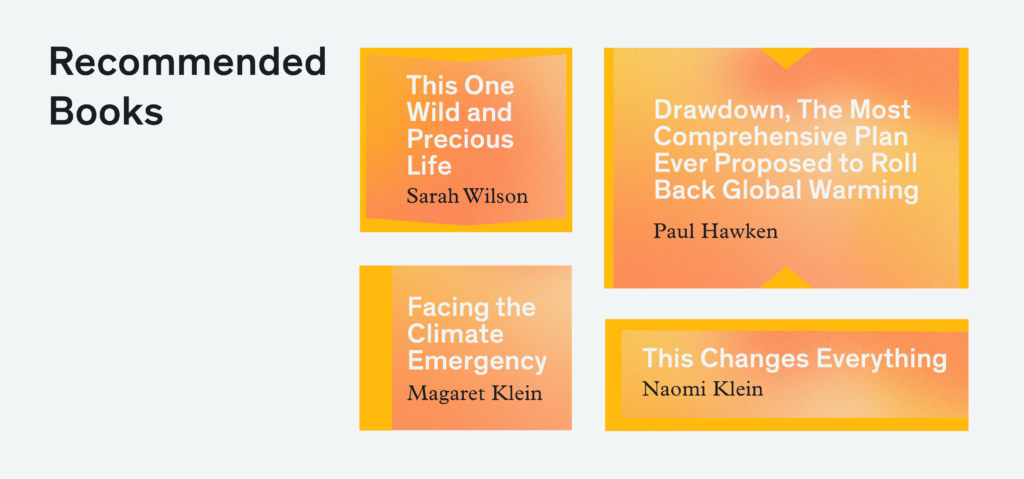Transforming the Overwhelming News of the IPCC Climate Report into Positive Action
agosto 19, 2021
The new climate report released by The Intergovernmental Panel on Climate Change (IPCC) on the 9th of August was crystal clear: our survival as humans on the planet is at stake. This is a code red for humanity.
Although this isn’t surprising news, the main novelty about this report is that it concludes with high confidence that the plans that countries have put forward to reduce emissions are insufficient to keep human-caused global warming below 1.5°C, the goal in the 2015 Paris Agreement.

Further, it states that several climate impacts, such as sea level rise, ocean acidification, rise in land temperatures and extreme weather events are now inevitable and irreversible. This means that some of the scenes we are seeing globally, like the floods in China and Germany, the fires in Greece and California or the heat waves in North America, are only a mild preview of the decades ahead; these will happen more frequently, more intensely and sooner than expected.
But not all hope is lost. The report also says we still have a decade to stay below 2°C warming and avoid the worst catastrophic devastation if we drastically and rapidly cut our carbon emissions.
So… how do we react to this? Let me guess how you’re feeling.
Our experience working to mobilise different audiences in the climate movement tells us that there is a common reaction when this type of report is released.
Often we feel overwhelmed; it’s too much information too process, we blame our leaders for being incompetent and useless and we feel hopeless. Are the top 100 companies responsible for 71% of global emissions ever going to change? Isn’t this a problem that other more polluting countries should deal with? So we switch off from the conversation, we keep scrolling to be distracted with the next thing that Mark Zuckerberg’s algorithm had in the queue to entertain us and then we go back to our busy routines because hey, we get it, we have enough with our daily lives, our personal dramas and surviving a pandemic.

So… How do we get engaged?
As the psychologist Margaret Klein says in her book “Facing the climate emergency”, first we need to fully face the truth, intellectually and emotionally. We need to understand that this is not only about polar bears or indigenous people living in remote islands. This is about you and the ones you love and this is going to create a major disruption in your life before you think it will, if it hasn’t created it yet. This is about losing everything; a true threat to our lives- not in a hypothetical future but now and in the decades to come.
This is heavy news and it’s normal that our defence mechanisms try to protect us from the pain and avoid this confrontation but as with any other aspects of life, those physcological tricks are only temporary and when we fail to process these emotions, we are slowly creating a mini monster inside ourselves and that little monster and its inner voice will follow us and will eventually become bigger and nosier unless we face it head on.
Then, what can we do? How do we kill the monster and take action?
First, get yourself properly informed and then take the time you need to fully process this news. Then, as suggested by Sarah Wilson in “This One Wild and Precious Life”, it is key that in this process we reconnect with our love and appreciation for life and the world we inhabit. This starts with going outside, disconnecting from all our distractions, getting immersed in our beautiful natural world, connecting with our loved ones and taking some time to understand and appreciate what’s happening to this stunning planet and all the species that reside in it.
After that process of awakening and reconnection with life in all its dimensions (human life, plant life, animal life), the next step is finding our purpose or cause within the movement. Maybe for some it’s the children’s right to have a future, maybe it’s protecting the natural spaces you have enjoyed since you were a kid, maybe it’s the love for wildlife, or coral reefs, or a passion for innovative and cool green businesses, or a duty as a religious person to protect god’s creation, or a devotion to fight injustices and defend a better future for developing countries which are facing the worst face of the climate crisis, or just to guarantee better health conditions in the years to come or simply to protect places that will disappear like Greenland or Maldives. The list goes on, but whatever it is, find what goes to the core of your heart and listen to it.
Lastly, as my friend Carolina Weisberg and creator of Lagom Club used to tell me, let’s embrace the idea of an imperfectly perfect sustainable life and let’s not feel overwhelmed by everything that needs to be done but focus on the top 3-5 things you can do first.

This could be a range of actions including: Switching your energy provider to one providing renewable energy or installing solar; finding transport alternatives that are not fuel-powered, driving less and walking, cycling or using public transport more; making your diet as local, organic and plant-based as possible; moving your money away from any bank or super that invests in fossil fuels; composting, starting a garden or planting trees; writing to your MP demanding action; offsetting emissions with reforestation projects; making your vote a climate vote; buying less and choosing more sustainable and fair options; talking about this with your family or friends; being an advocate at your workplace or joining or supporting a climate grassroot or advocacy organisation.
Choose your priorities, set up your goals and create a timeline to get them done.

In the same way that every tiny fraction of a degree matters, every tiny individual action makes a difference too and as the climate justice activist Mary Annaïse Heglar said:
“The thing about climate is that you can either be overwhelmed by the complexity of the problem or fall in love with the creativity of solutions.”
You can let your passivity be a perpetrator of this crisis or become a driving force for positive change.
And what if at the end, we not only created a more sustainable world but a better one?

Um guia digital de combate à desinformação.